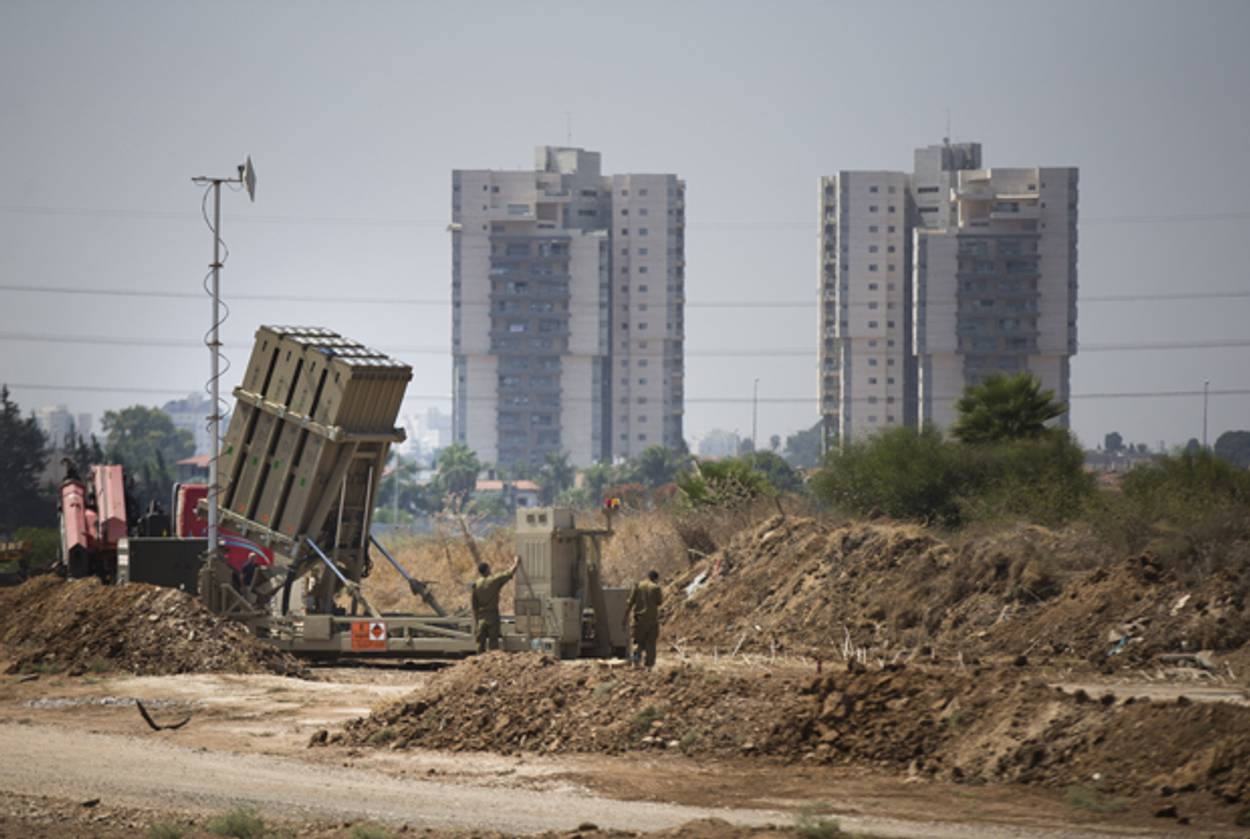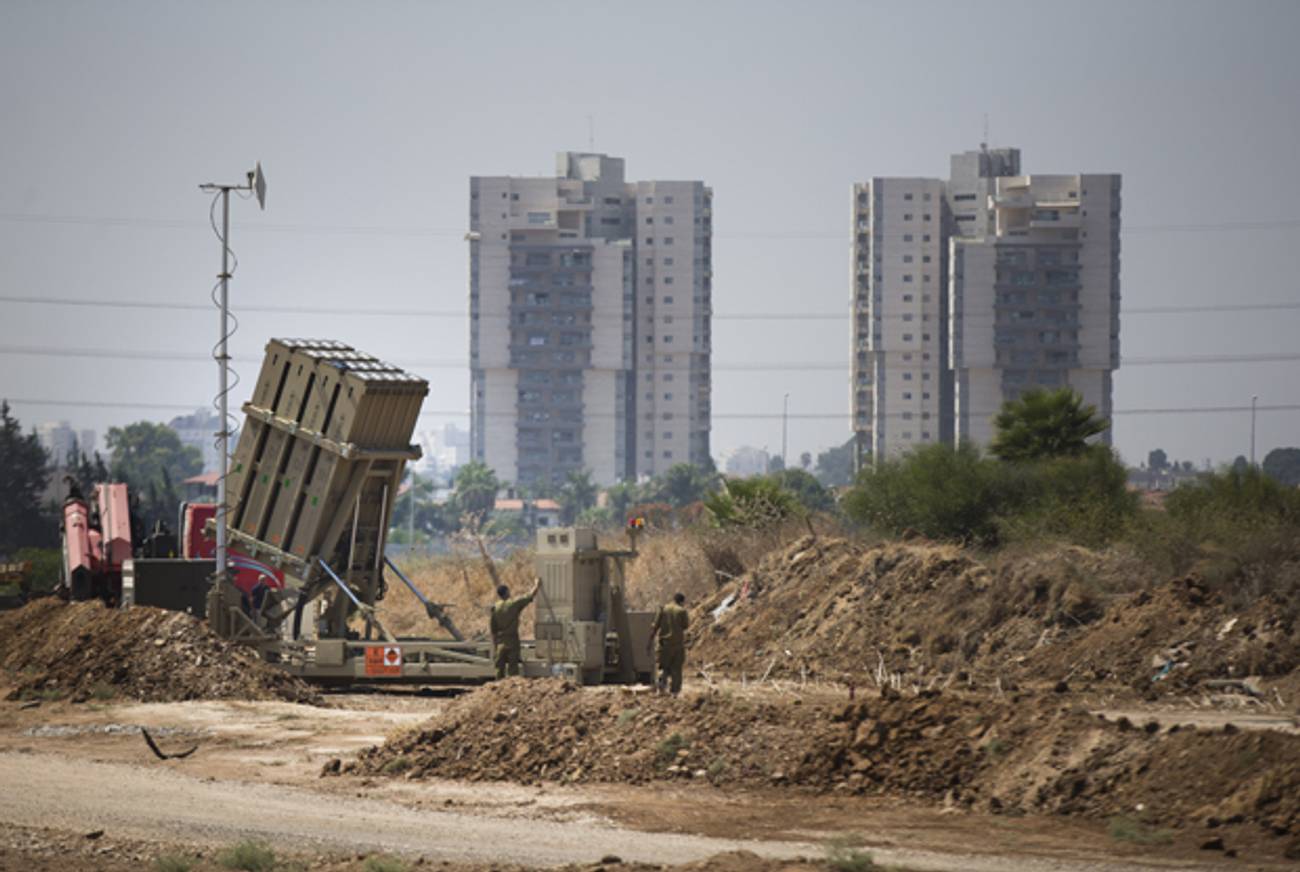Iron Dome Deployed in Tel Aviv
First time the system has been readied for possible attack from Israel’s north




Israel’s Iron Dome missile defense system has been deployed in Tel Aviv, JTA reports, a precautionary measure against Syria’s claims it will target Israel if the United States indeed launches strikes on Syria:
The Iron Dome deployment near Tel Aviv was completed on Friday morning, Army Radio reported, adding it was the first time the system has been readied to intercept inbound fire from the north.
As Jonathan Spyer reported Wednesday, a rush to get gas masks and the calling-up of reserve IDF troops has injected an anxious energy into the normally calm Israeli summer after news of a chemical attack on Syrian rebels gripped the world.
Yesterday the British Parliament voted against authorizing military action against Syria, a “humiliating and unexpected development” for Prime Minister David Cameron’s coalition government, Reuters reports. This means the United States will act unilaterally if it strikes Syria, something President Obama is considering, according to the Wall Street Journal:
But President Barack Obama is prepared to act without Britain, officials said, noting that unlike U.S. involvement in the 2011 military operation in Libya, the options under consideration in Syria are smaller-scale and wouldn’t require a coalition to be effective.
In Israel, concerns range from the possibility of retaliatory attacks from Syria to the larger implications of U.S. intervention–or non-intervention—in the region. As David Makovsky pointed out earlier this week, if bombs fall on Damascus, the Israeli government will be watching Iran.
As one of Israel’s top officials told me last week, “when the US puts forward a red line, it has to mean it. The issue goes beyond Syria. It is a matter of credibility with reverberations for U.S. policy towards Iran.” Amid speculation and skepticism about the depth of American commitment in preventing a nuclear Iran, enforcing red lines in Syria would at least send out a broader message that words do have meaning.
You can follow along with all of Tablet’s coverage of the escalating situation in Syria here.
Stephanie Butnick is chief strategy officer of Tablet Magazine, co-founder of Tablet Studios, and a host of the Unorthodox podcast.